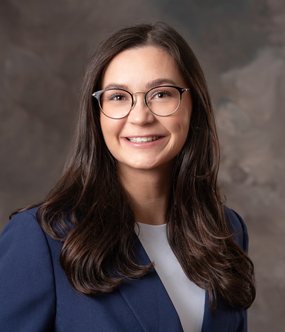Know Your Current Health Status
January 16, 2025
When was your last annual checkup? If it has been more than a year, or you don’t even have a PCP, it is time to start thinking about getting one.
Having a PCP is crucial for maintaining long-term health, yet many people overlook this need, especially if they feel healthy and are not experiencing any symptoms. It is easy to assume that if you don’t feel sick, you don’t need to see a doctor. However, this misconception can lead to missed opportunities for early detection and prevention of potential health issues.
 Shalyn Monsees, APRN, advanced nurse practitioner at St. Mary’s Family Care of Enid, discusses the importance of developing a relationship with a primary care doctor and getting baseline tests to determine your health.
Shalyn Monsees, APRN, advanced nurse practitioner at St. Mary’s Family Care of Enid, discusses the importance of developing a relationship with a primary care doctor and getting baseline tests to determine your health.
Why should I see a primary care doctor?
Primary care can help prevent illness and death. Routine visits with a PCP may help identify early warning signs of illness, allowing for timely treatment.
What are the different types of primary care providers?
If you are looking for a new provider, you may come across several types of medical professionals who specialize in primary care, including:
- Family practitioners
- Pediatricians
- Geriatricians
- Physician assistants
- Nurse practitioners
- Internists
- Obstetricians and gynecologists
All of these providers are trained in primary care, but some have a specialty or focus on a particular age or gender. For example, a pediatrician cares for children while a geriatrician specializes in the needs of people who are aging. Obstetricians and gynecologists are experts in reproductive health, which is a specialized type of primary care.
Whether you opt for a family physician, internist or nurse practitioner, the key is finding a provider you trust and feel comfortable with.
How often should I see a PCP and what do they do for the patient?
You should see a PCP at least once a year so they can provide preventive care, help diagnose and manage chronic conditions and address any new health concerns. By establishing a relationship with a PCP, they get to know your medical history, which can help identify your risk factors and any changes in your health. Plus, you will have access to a provider who can oversee your care if you do get sick — ensuring you receive personalized attention and may avoid more costly care settings, like urgent care.
Having a consistent relationship with a provider can also make it easier to talk openly about your health, including any physical and emotional concerns. A physical exam and tests provide important information, but your symptoms can help point your provider in the right direction.
What does a PCP do at an annual checkup?
If you haven’t had an annual checkup in a while, you may be wondering what to expect. Your annual exam may consist of:
- Physical exam
- Cancer screenings
- Diet and physical fitness evaluation
- Immunizations
- Chronic condition management
We continue to deliver quality healthcare services that patients recommend, physicians prefer and employees are proud of. We are honored to be your Health Hub of Northwest Oklahoma, so you can remain close to home for your healthcare needs.
Schedule an appointment
To make an appointment with Shalyn Monsees, APRN, call 580-242-1300 or schedule an appointment online.
